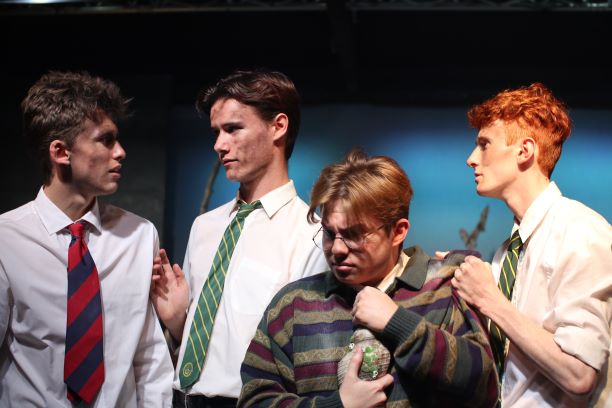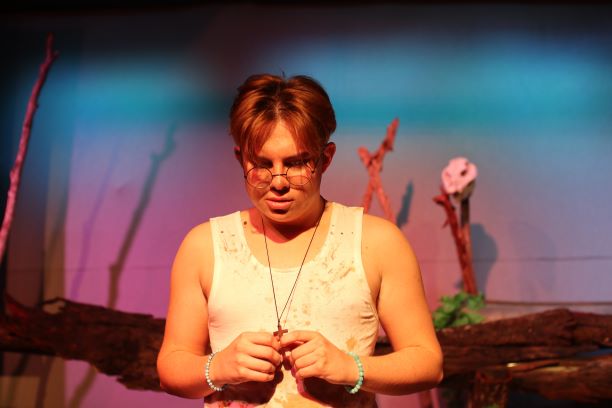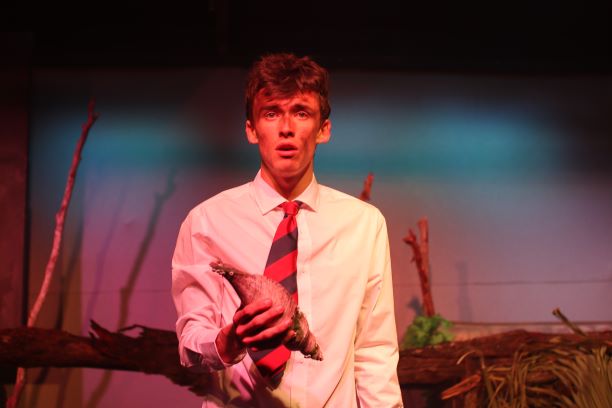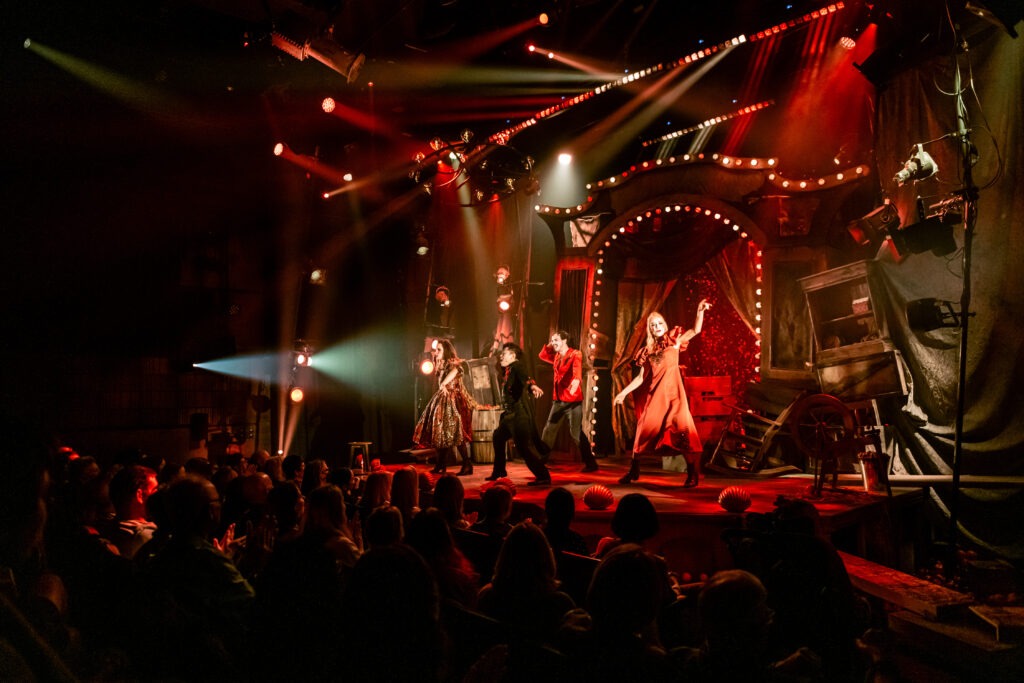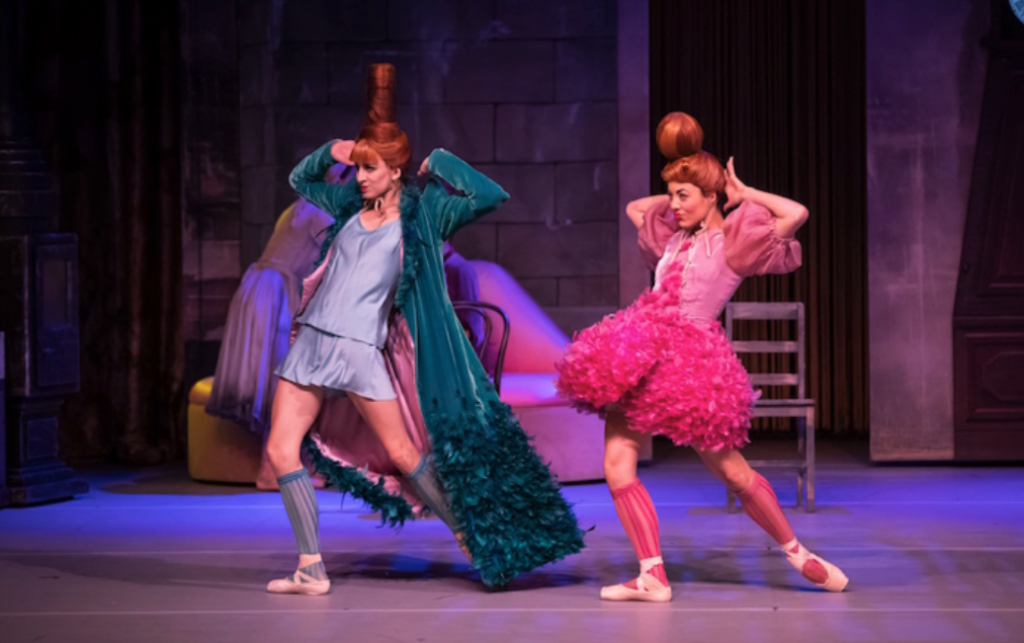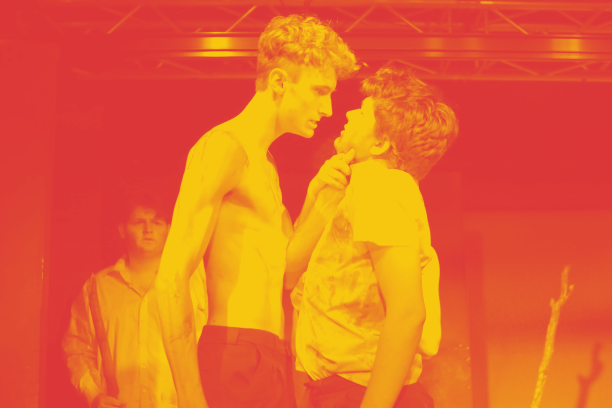
‘Lord of the Flies’ // Redcliffe Musical Theatre
‘Lord of the Flies’ was haunting.
Originally intended to be performed last year, Redcliffe Musical Theatre’s ‘Lord of the Flies’ perfectly encapsulates 2020’s feelings of isolation and uneasiness.
With live theatre beginning to resurface following COVID-19’s lockdown, RMT’s choice of production is a poignant one. Audience members are scattered throughout Redcliffe’s Theatre102 to adhere to social distancing regulations. This, in effect, makes the experience of ‘Lord of the Flies’ more intimate.
Based upon William Golding’s debut novel, ‘Lord of the Flies’ has inspired several adaptations throughout the past six decades. These have included three feature films, a radio play, and even a parody episode of ‘The Simpsons’. Recognised as a landmark of modern literature, BBC News included the text in its 2019 list of 100 most inspiring novels. Nigel Williams originally adapted the novel for the stage in 1995, with the Royal Shakespeare Company premiering the play a year later. Its themes of society, questionable morality and will power have made ‘Lord of the Flies’ as resonant today as when it was first published.
Redcliffe Musical Theatre’s production of ‘Lord of the Flies’ marks Zachary Crisan’s debut as a director. Crisan’s affinity for the story of a group of lost boys trying to establish a new society on a deserted island is abundantly clear. Describing the production as a ‘dark play’, Crisan draws upon the original text’s depressive tone to escalate his interpretation’s dramatic effect. What results is an effectively harrowing tale of lost innocence and moral corruption.
Using Theatre 102’s intimate staging to stellar effect, the production’s lighting and sound produce an all-encompassing feeling of dread. Technical Director, Jonathan Moss highlights pivotal moments throughout the production with red lighting, inducing a feeling of growing disquiet. This is used to its full dramatic effect when combined with a chillingly macabre soundtrack which reverberates around the theatre. Subsequently, much like the players onstage, the audience feels equally ensnared in an atmosphere of increasing trepidation.
The set design, under the guidance of Jonathan Johns, is cleverly conceived to make use of limited space. A log centred in the middle of the stage connecting two ‘sides’ of the island reinforces the notion of divided frames of mind. The use of a makeshift boar’s head and skull further intensifies the aura of desolation. Similarly, the conch shell and Piggy’s glasses, arguably the production’s most important props, establish how individuals can become connected to inconsequential things in moments of desperation.
As the play continues into deeper depths of savagery, the costuming excellently reinforces this. Commencing in neat school uniforms, the performers gradually become dirtier and more unkempt. Sarah Hunt’s costume design demonstrates an intriguing visual cue for both the passage of time and the boys’ progressive loss of humanity.
Crisan’s direction is nuanced and well-formulated throughout, an impressive feat for his debut. Crisan’s consideration of space is evident through his blocking choices. Performers are interspersed across the set, which is split into two levels to evoke the island’s wide expanse. This cleverly and effectively represents the characters’ sense of moral high (or low) ground. Several key scenes take place on the stage’s floor. In framing the action this way, Crisan perceptively captures characters’ descent into madness through his use of visuals and blocking. This is an insightfully creative choice which benefits the play’s dramatic themes.
Featuring an all-male cast, each player acts as a core piece to the overarching narrative puzzle. Helmed by a magnetic Bailey Parker as Ralph, the cast’s chemistry resonates throughout. Liam Wade and Ben McMahon’s ferocious and tragic portrayals of Roger and Piggy respectively are particular standouts. As is Lyndon Steele, whose monologue at Act 1’s climax is delivered with haunting vigour. Parker and Torin Rhys’ rivalry perfectly exudes a rising resentment which fuels much of the production’s tension. All cast members, however, ultimately rise to the challenge of presenting the tale of inner destruction with evocative dedication.
Redcliffe Musical Theatre’s return to the 2020 season is an ingenious one. In choosing to perform ‘Lord of the Flies’, RMT presents a play that is both classic in origin and relatable in nature. It culminates in a production that will stay with its audience long after the cast takes their bows. A stellar return to live theatre, one which will haunt all those who see it – in the best possible way.
‘Lord of the Flies’ performs until Sunday, 27 September 2020, at Redcliffe Musical Theatre. For more information, or to purchase tickets, visit Redcliffe Musical Theatre’s website.




